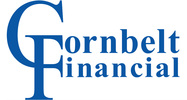|
One important step to both reducing taxes and saving for retirement is to contribute to a tax-advantaged retirement plan. If your employer offers a 401(k) plan, contributing to that is likely your best first step. If you’re not already contributing the maximum allowed, consider increasing your contribution rate between now and year end. Because of tax-deferred compounding (tax-free in the case of Roth accounts), boosting contributions sooner rather than later can have a significant impact on the size of your nest egg at retirement. Traditional 401(k) A traditional 401(k) offers many benefits:
For 2017, you can contribute up to $18,000. So if your current contribution rate will leave you short of the limit, try to increase your contribution rate through the end of the year to get as close to that limit as you can afford. Keep in mind that your paycheck will be reduced by less than the dollar amount of the contribution, because the contributions are pre-tax so income tax isn’t withheld. If you’ll be age 50 or older by December 31, you can also make “catch-up” contributions (up to $6,000 for 2017). So if you didn’t contribute much when you were younger, this may allow you to partially make up for lost time. Even if you did make significant contributions before age 50, catch-up contributions can still be beneficial, allowing you to further leverage the power of tax-deferred compounding. Roth 401(k) Employers can include a Roth option in their 401(k) plans. If your plan offers this, you can designate some or all of your contribution as Roth contributions. While such contributions don’t reduce your current MAGI, qualified distributions will be tax-free. Roth 401(k) contributions may be especially beneficial for higher-income earners, because they don’t have the option to contribute to a Roth IRA. On the other hand, if you expect your tax rate to be lower in retirement, you may be better off sticking with traditional 401(k) contributions. Finally, keep in mind that any employer matches to Roth 401(k) contributions will be pretax and go into your traditional 401(k) account. How much and which type Have questions about how much to contribute or the best mix between traditional and Roth contributions? Contact us. We’d be pleased to discuss the tax and retirement-saving considerations with you. © 2017
0 Comments
Your comment will be posted after it is approved.
Leave a Reply. |
AuthorAdam Carr, MBA, EA Archives
June 2024
Categories
All
|


 RSS Feed
RSS Feed

